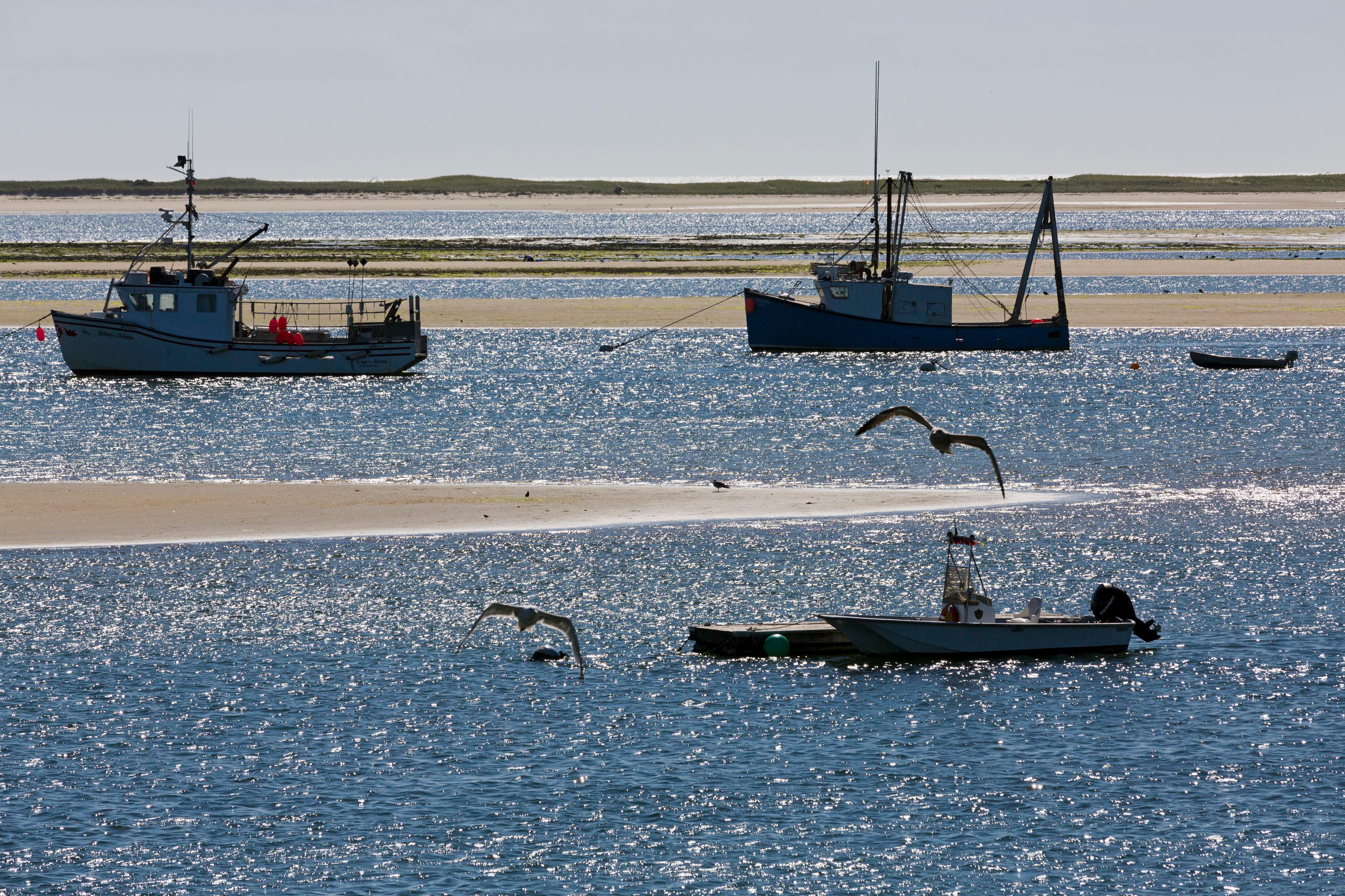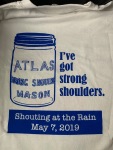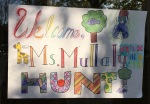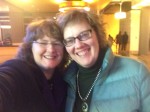Mentor Monday ~ Luke Reynolds
A BIG MENTOR MONDAY welcome to Luke Reynolds, agent-mate at Erin Murphy Literary Agency and author of several wonderful pieces of work including, BURNED IN: FUELING THE FIRE TO TEACH and DEDICATED TO THE PEOPLE OF DARFUR: WRITINGS ON FEAR, RISK, AND HOPE. And if that weren’t enough, Luke is an all-around, really great guy! We’ve only met online, but a message from him always puts a smile on the face–he is so very optimistic and wise. I look forward to meeting him in person one of these days…
Here, he shares a moving tribute to his mentor, John Robinson:
One True Life
Ernest Hemingway once claimed, “All you need to write is one true sentence.” I have often wondered if the Nobel-Prize winning author meant for us all to take that literally—just write one authentic, amazing, drop-dead-spot-on TRUE sentence, and you’re done. Finished. You’ve reached the peak of what it’s all about as a writer. Or, did Hemingway mean for us to take it as a sort of challenge, an invitation, to let our hearts sweat as we try to craft the stories that need crafting, realizing that we can only ever write one true sentence at a time. If we keep at it long enough—devote ourselves to it passionately enough—then eventually we’ll move to another sentence.
And another.
 Caption for photo: John Robinson and Luke Reynolds, in Room 106 at Hamilton-Wenham High School, 2003.
Caption for photo: John Robinson and Luke Reynolds, in Room 106 at Hamilton-Wenham High School, 2003.And another.
When I think of my life nine years ago, a wet-behind-the-ears Senior at Gordon College, aspiring to be a great teacher and a great writer, I have to chuckle. Because I didn’t have the slightest clue what it took to even be decent at either of those two lofty endeavors. All I knew was that ever since I was about five years old, I knew I wanted to write books and teach other people to write, too.
But a funny thing happens when you’re twenty-two and just getting ready to leave college: stuff gets hard. Everything, really. Electric bills, heating bills, considering how to find a job, considering how to find a soul mate, considering how to live out writer Frederick Buechner’s exhortation to go where your greatest passion meets the world’s greatest need.
Into this wow-life-is-getting-hard-and-complex last semester of my college life came my supervising teacher, Mr. John Robinson. I would be paired up with John as a part of my Secondary Education program, and it would be in Room 106 at Hamilton-Wenham Regional High School that I would learn to become both a high school English teacher and a writer. It would be under the tutelage of John that I would learn what it takes to make dreams become realities.
And ever a man of warmth, wisdom, and wit, when I first met John, all I remember is this moment (which changed everything): amidst talk of all the forms we would have to fill out to satisfy the college’s requirements, John leaned in towards me, across the hard rolls and red grapes of our luncheon, and whispered conspiratorially, “Do you write?”
Then, the wide smile. The smile that said, essentially, just wait until you see what we can do together, man. It was—and is—a smile that welcomes people in: everyone from waiters and waitresses at diners John frequents to students he inspires to aspiring teachers and writers like myself.
I said, “Yes,” and so began a nine-year mentorship program with no flippant paperwork and requirements, but instead incredible love and instruction.
In our semester together, I watched John’s passion for literature inspire his students, and I learned from him how to teach from the center of one’s heart—not according to soul-less rubrics but according to those greater standards: passion, belief, authenticity, clarity.
But I also received an education easily worth a four-year college degree—it would have been called Writing and Publishing, and John Robinson was one heck of a Professor.
After our school day would end and the students would leave, I would watch as John checked his e-mail, and there would be messages from the Fiction editor of The New Yorker, telling John that his work was powerfully composed; or there would be a note of reply from a lit mag where John’s writing had been accepted. I began to see how one goes about sending work into the world, and I was grateful even to be a part of the drive to the local post office, occasionally, after teaching when John would send of a novel to an agent or a requesting editor.
John worked with me on my own writing, as well. Even as, by day, he taught me to inspire students and line edit their works with the kind of precision one would expect from a production or copy editor at a New York house, by early morning or evening, John would share wisdom and advice for my own fiction.
Occasionally, I woke early enough to meet him at the Agawam Diner, where John ate each morning on his way to school. He knew everyone and they knew him. And I could sit at John’s booth there, listen to him talk about every great writer from Hemingway to Gore Vidal to Andre Gide to a thousand others. John could quote lines from their work as if he’d had them written on the back of his hands; he could recall their counsel to other writers; and he could deliver their moments of triumph and despair with such emotion and conviction that I felt as if John knew these writers.
And he did. John had travelled his own long road to become the published author of novels, short stories, plays, and essays—and amidst fighting his own battles, he learned how to speak knowingly and movingly of the battles all writers face.
I graduated college, became a high school English teacher, and started writing my first novel. Every time I hit a wall—whether in teaching or in writing—John was there. I would call him or e-mail him with my current dilemma and, as appropriate, John would encourage, challenge, or probe. He was always ready with sage words that came from his soul—yes—but also from that great cloud of witnesses: other writers whose words were etched on his own heart, his own life.
Years passed. I met the love of my life—Jennifer—and John was there. At our Rehearsal Dinner, the night before the wedding, John read a speech he had composed which included literary allusions galore, and as he shared the words, there was that smile.
That smile.
I started a Creative Writing program after three years of teaching. And John was there—still that smile, offering guidance on writing, publishing, revising.
As life continued, John was always there, whatever the case might be. He was ready to share his own stories of success and failure, and he was always ready to point out that whatever I faced in my own life, some other writer had been through something similar and survived it, had grown from it, had used it to fuel creation and creativity.
Before this most recent adventure in my life—for my family and I to move to England—John and I met at the historic Plough & Stars pub in Boston, where the gorgeous literary journal Ploughshares was first inspired (a journal in which one of John’s short stories, “Centipedes on Skates” once appeared). It would be our last face-to-face meeting before we left for the UK.
John talked with his usual wit, wisdom, and warmth. The meal was lovely, and when it was time to say goodbye, John wrapped his arms around me and wished me well. He encouraged me to keep writing, and told me that great stories were in store for me.
When we separated, I looked at him and had one of those rare moments where you realize the full worth of someone’s love in your life—and you realize it while they’re right in front of you.
I looked at John, but I had no word to explain just how deeply his guidance, concern, and care for me as a writer and teacher had affected me. So I said the only two words I could say, which really said it all.
“Thank you.”
And today, I say those words over and over and over again. As John and I e-mail, on a daily basis, we connect about writing and teaching and creativity and passion. And the gratitude I felt the day we hugged goodbye is ever-present.
When Hemingway told us that all we needed to write is one true sentence, maybe this is what he meant: that when you, the author, craft one single sentence in which every word fits with the next—in which there is no guise, no fear, no short-cuts and no cheap forgery—then maybe you’ve taught yourself what matters most. You’ve taught yourself how to write the way we long to live. You’ve taught yourself that writing well is about working harder than you ever thought you could, believing when it feels impossible to believe, and trying again when it seems as though the line (or the paragraph, or the story, or the book) just won’t ever be right. And you do it anyway. You go at it again. You choose to believe again.
In writing one true sentence, you teach yourself how to live the life of a writer.
And with Hemingway’s sage words in mind, I think of the love and wisdom of my mentor, John Robinson, and that wide smile.
And my heart writes the words One True Life in the space between that smile and me. Thank you, John.











































Thank you for your blog article.Really looking forward to find out more. Great.
LikeLike